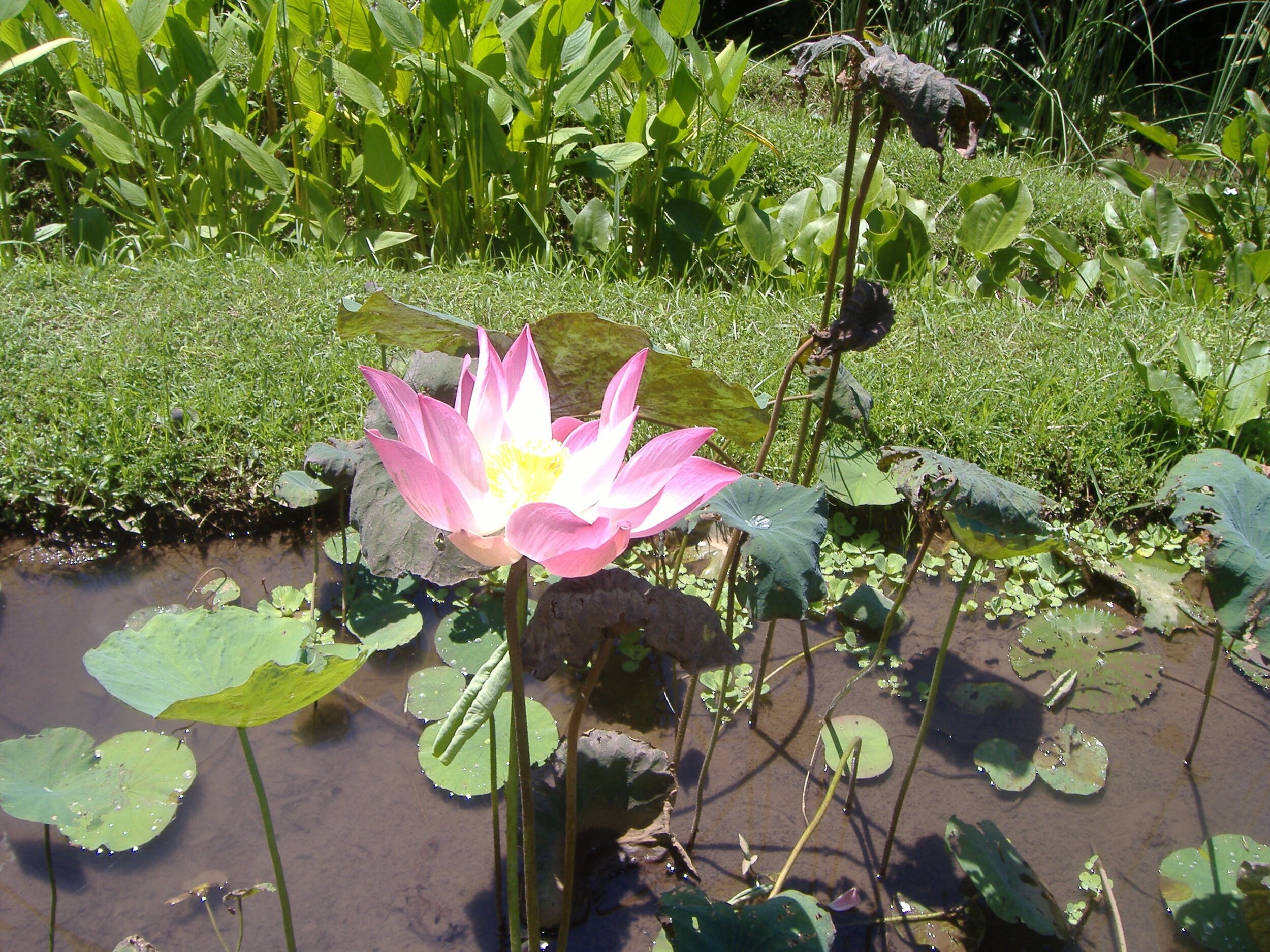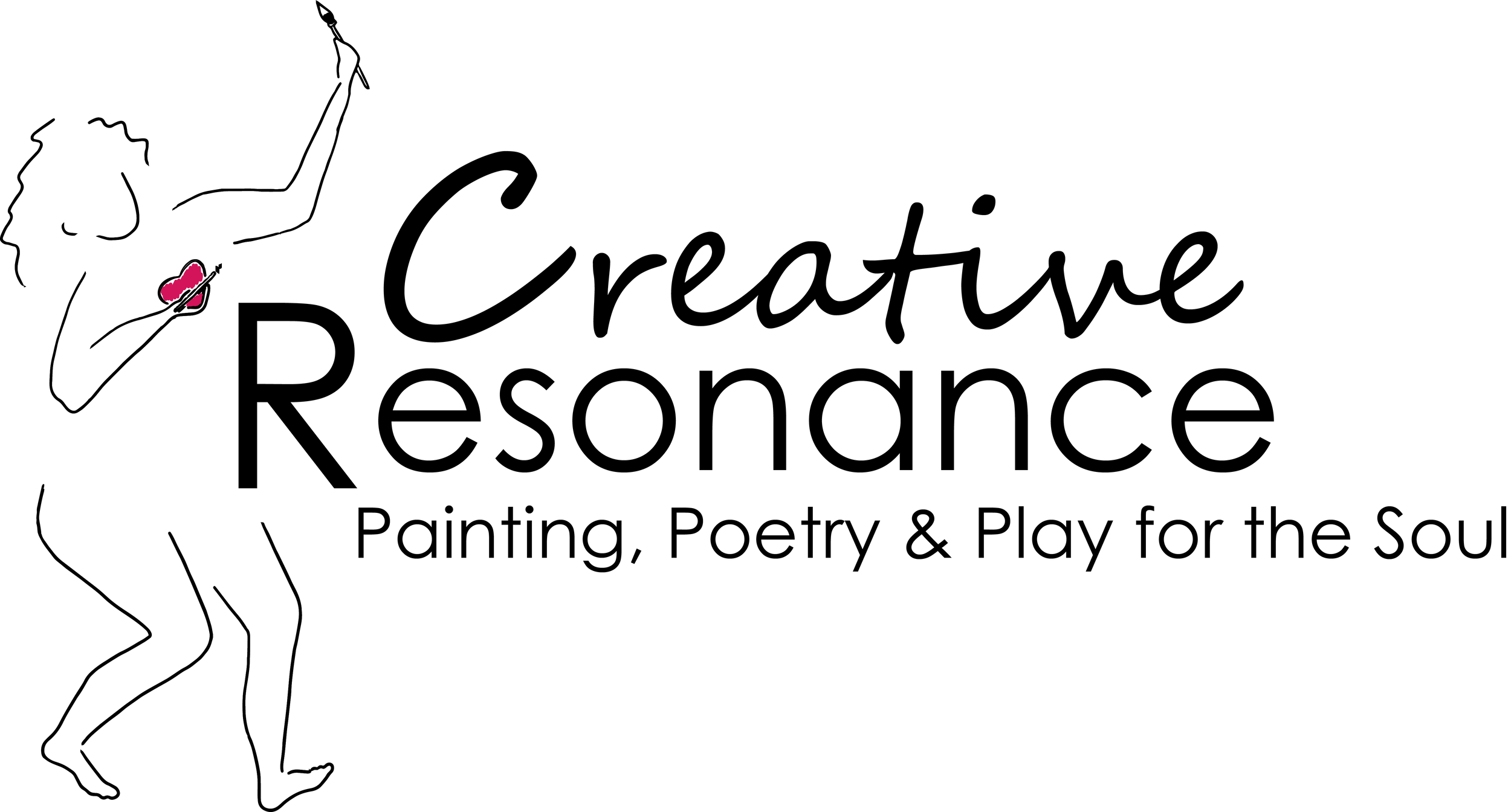Thin Moments, Thin Places, Grace, and Vulnerability
/“You can have the other words ~ chance, luck, coincidence, serendipity. I'll take grace.
I don't know what it is exactly, but I'll take it.”
~ Mary Oliver
Recently I read one of my new poems out loud to a friend and she responded that she liked it a lot. I told her that my Muse had shown up as I was writing it, that I’d gotten out of my own way, and how it felt like I was simply taking dictation. My friend then replied, “Yeah, but you also had something to do with it”.
I realized afterwards that I may have confused my friend because I don’t think of my Muse as outside of me or other than me. When I speak about my Muse showing up as I write or paint, I am really talking about the intuitive part of me, the non-linear right brain part of me, the place of greatest aliveness within me, rather than the logical, linear, left brain part of me.
This intimate relationship is a type of “thin place” or “thin moment” where I experience my Muse as my own inner authentic voice. When I am in connection with the vulnerable, courageous, unconventional, and often sassier voice within me. The one who encourages me to be curious and brave, to move toward the scary edges of my creative comfort zone. When I heed the call, I find myself in an unencumbered space, a place of conscious listening, creative witnessing, presence, vulnerability, and grace.
In Gaelic folklore, in places like Scotland or Ireland, there are specific geographical locations revered and known as “thin places” and these are often places of pilgrimage. But thin places and thin moments are not limited to these locations. The quote below from Paul MacCormack speaks to this:
“Although this terminology can be used to refer to places of pilgrimage, it can also be used to refer to those times in our lives when the demarcation between the concrete realities we hold fast to and the possibilities of a greater truth converge. Thin moments are essentially those experiences when we feel in our bones that we are part of something much larger than what our everyday thought processes dictate. Our notions of self disappear briefly, and we become present to the moment as it unfolds before us; an expanded form of conscious awareness. ~ Paul MacCormack ·
A poetic quote from contemporary poet Sharlande Sledge gives this description:
“Thin places, the Celts call this space,
Both seen and unseen,
Where the door between the world
And the next is cracked open for a moment
And the light is not all on the other side.”
When I am in the flow of writing a poem, or when I am trusting the brush to paint what is being asked to be painted, I get out of my own way, and take direction from my Muse.
I have a full body experience of being present to the “space, both seen and unseen, where the door between the world and the next is cracked open for a moment, and the light is not all on the other side”. That space is a special kind of grace.
On this side of the pond, several years ago, New York Times travel writer, Eric Weiner riffed on this topic of thin places. He wrote about what they are and what they are not:
“So what exactly makes a place thin? It’s easier to say what a thin place is not. A thin place is not necessarily a tranquil place, or a fun one, or even a beautiful one, though it may be all of those things too. Disney World is not a thin place. Nor is Cancún. Thin places relax us, yes, but they also transform us - or, more accurately, unmask us. In thin places, we become our more essential selves.
Yet...if God (however defined) is everywhere and “everywhen,” as the Australian aboriginals put it so wonderfully, then why are some places thin and others not? Why isn’t the whole world thin? Maybe it is but we’re too thick to recognize it. Maybe thin places offer glimpses not of heaven but of earth as it really is, unencumbered. Unmasked”. ~Eric Weiner NYT travel writer
When I am in a thin moment, I feel unencumbered and unmasked, deeply connected with life in all of her terrible beauty. Her raw unapologetic “be here now-ness”. I feel vulnerable, undefended, and more fully alive.
A few weeks ago, I experienced a particularly personal thin moment. I had a bit of a headache and a mild sore throat. In these times of global pandemic, it is recommended that one get tested for Covid-19 if symptoms of a cold or flu appear. In that raw moment of realization that I might be infected, I felt a sharp pang of fear and a profound gut wrenching vulnerability.
If I tested positive, I worried that I might have inadvertently exposed others to the virus, most concerning of all, my pregnant daughter-in-law. And if I had the virus, what might happen if I got really sick. Would I be able to take care of myself in isolation? As a health care practitioner, I am more comfortable in the role of caregiver, and not so much with needing or asking for help.
I spent five days in isolation, as I scheduled and received a Covid test, and then another 36 hours awaiting the welcome negative test results. During that week, even as my headache and sore throat receded and disappeared within a day of their initial onset, what appeared in predictable succession were fear, despair, shame, prayer, gratitude, relief, joy, and more gratitude. During my time of self-quarantine, my family and friends checked in with me regularly. I never felt completely alone but I did feel vulnerable.
This was definitely a thin moment for me. In my seclusion, contemplating the scary possibility of being ill with Covid, and the terrifying possibility that I might have been a vector of contagion, I also experienced a fair bit of shame. I imagined and empathized with all the people in the past who lived with leprosy as outcasts on a secluded island. And I remembered vividly, as if it was just yesterday and not thirty-five years ago, when my best friend Howard in San Francisco tested positive for HIV. And how sad it was the first time we saw each other after he tested positive, how he pulled back from me when I went to hug him. How I wholeheartedly embraced him, both of us feeling scared and vulnerable...
Thin moments unmask us and transform us. I think of these moments as portals when “the door is cracked open and the light is not all on the other side”. An invitation to let go or loosen the grip of my logical strategic judgy left brain. A time of profound vulnerability. In those thin moments, when I trust the pen to write, trust the brush to paint, trust my Muse to lead me in the flow of creativity, I am in a thin place of grace.
Not surprisingly, during those thin moments and for sometime afterwards, I have more energy and enthusiasm for my life. I feel more deeply connected to my essential self. I am more generous and empathic with others. I feel enlivened and inspired to write, paint, dance, play, cook, and even clean. In this place of greater aliveness, I listen well to my own small voice within, as well as to the needs and wants of others. In this thin place, there is a lot more energy and generosity of spirit.
What I’m discovering as I experience thin places and thin moments more and more, is that scarcity is a cultural concept reinforced by the left brain. While generosity is the natural benevolent expression of spirit celebrated by the intuitive right brain. Thin moments and thin places are experiences of beauty that may not be neat and pretty. They can be fierce, messy, gritty, astonishing, inspiring, and transformative affairs. And like most things in life, it is a matter of perception and a moment of choice. To choose the orientation of deep attention and self-forgetting. Choosing vulnerability and courage over comfort is a thin place of grace.
And on that note, I offer you my new poem below:
Beauty Is Not Always Pretty: Thin Moments,Thin Places, Grace...
“Beauty is an achieved state of both deep attention and self-forgetting”.
~ David Whyte
Beauty is not always pretty, she is often untamed and furious,
she defies conventional definitions of loveliness, and compels us to lean in, be curious,
when our shy mind’s eye would prefer to glance away she persuades us to stay,
to wade into the waves slapping the sharp coral reef, to not swim off out of fear,
but to draw near, revere this thin place, play deftly and reverently,
tread water in this tropical clear rip curl of color, shape, and image,
dare to frolic and splash inside the tremulous swell that sways us,
asking us to imagine and remember we can breathe underwater,
explore our original primordial breath and discover our greatest aliveness.
This terrible beauty is edgy and messy,
she disarms us with her unabashed eros,
her unprecedented layers of uncertainty and liminal cosmos,
in her presence, we are at a loss for logos,
logic wholly abandons us at this frontier,
and in its place, lo and behold we uncover our holy courage,
and the unbearable lightness of our own being dares to sing off key without apology,
prepares to fling paint and glitter delightedly across the vortex of a vast sea,
and from the sandy banks of blank white pages, intuition beckons, and poetry arises.
This fetching fierce beauty is unapologetic, she is our muse, our truth sayer.
She decries the concept of “nice” and champions grit and authenticity,
rejects recapitulation of the polite, pedestrian, and provincial,
instead she abides by the precepts of what brings us more fully alive.
She dignifies and ennobles us with permission to paint and write from our soul,
and challenges us to recover our heart and our humanity,
exalting our spirit and senses with humor and humility.
At long last the gloves are off, she throws down the gauntlet,
encouraging and revering true beauty through deep attention and self-forgetting.




